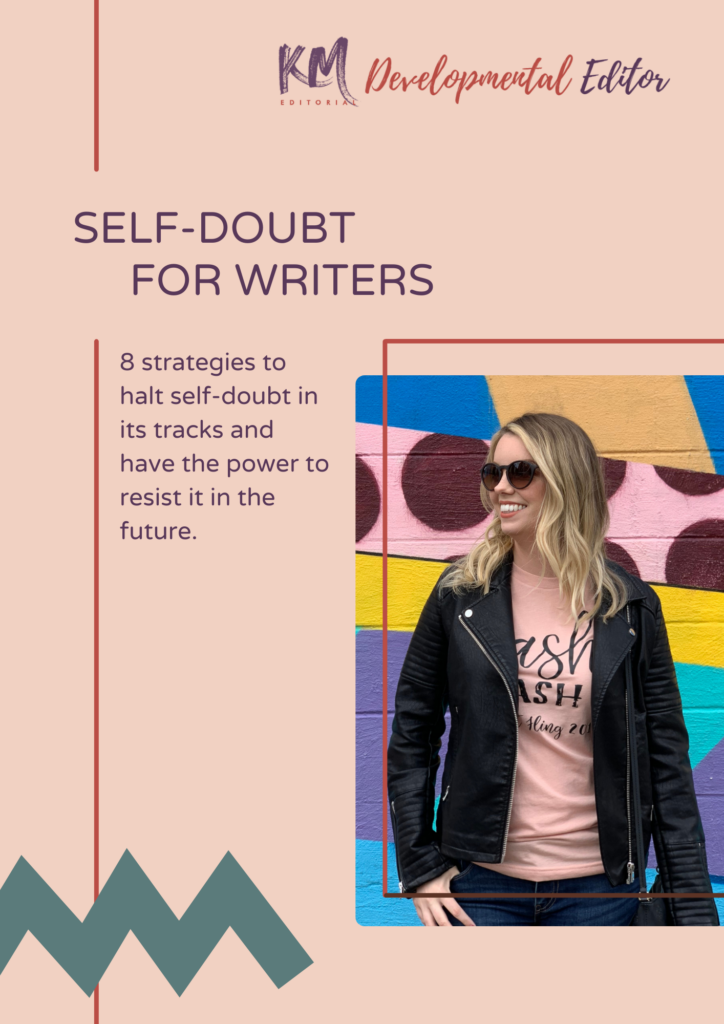 I’ve been fortunate enough in that many of my clients are already aware of developmental editing and why it’s important for their work, however this is not always going to be the case. Many authors, even self-published ones, still underestimate the importance of a “story” edit. That’s right, developmental editing focuses on the story, characters, plot, structure, readability, credibility, intended audience, and most important of all – will readers enjoy it?
I’ve been fortunate enough in that many of my clients are already aware of developmental editing and why it’s important for their work, however this is not always going to be the case. Many authors, even self-published ones, still underestimate the importance of a “story” edit. That’s right, developmental editing focuses on the story, characters, plot, structure, readability, credibility, intended audience, and most important of all – will readers enjoy it?
The editorial process of the developmental edit may vary from editor to editor, however the idea is the same – work with an author to help the author create the best possible story they can.
That last point is key. An editor is not helping you create the best YA fantasy adventure on the market – that is not a realistic expectation. The editor is helping you create your best YA fantasy adventure.
So why is a developmental editor important?
A developmental editor immerses himself or herself in your story –
Curious why an editor is able to charge a hefty fee? This is why. A developmental editor immerses himself or herself in your story. They soak it in; let it consume them for the days/weeks/months that they work on it. They are as close as they can be with your story without actually being the one who created and wrote it. When I edit or critique a manuscript, I usually gather all my thoughts and notes, type them up as if they are ready to send and then wait a couple days before sending off. Just because I “finished” doesn’t mean my work is done, and it definitely does not mean I’ve stopped thinking about it. Even doing this and being certain I’ve said all I can, I still find myself emailing a client a few days later with another idea that came to mind. Or a client may have additional questions later and want to bounce ideas around. Being immersed in the story means an editor is invested, and don’t you want to know your editor is invested as much as you?
A developmental editor understands your vision –
This is your story, your book, your writing. The right editor knows this and does not try to change this. They understand what you are hoping to accomplish (and if they don’t, tell them) and they will help you accomplish that. Do you have a specific theme to your story? An editor will help you stick to it. Is your intended audience single parents, young adults, or realists? An editor will make sure your story captures the audience you want. The same goes for genre. An editor should not try to change your vision – if that’s the case, why would you work with them? Make sure you and your editor are in sync.
A developmental editor is a reader –
When editing, I am not just looking at your work like an editor, I look at it as a reader as well. As a reader, what would I want to see more of? How does this story make me feel? Am I excited for the characters, do I even like the characters? Am I thinking about the story even after I’ve finished reading? Can I picture the people and world that this author has created? Has this author hooked me as a new fan?
The beauty of this trait of an editor is that they are your ideal reader. They know why something doesn’t work, or why one section is better placed in another section. They can express this to you and pinpoint the hows and whys. They have been trained for this, studied it, and perfected it. You may have readers who can do this as well, but often times a reader may just feel like the story didn’t work for them, a character didn’t gain their support, or something was off. An editor is a reader with an editor’s eye.
A developmental editor encourages you –
The right editor is rooting for you. They want to see you succeed because when you succeed, so do they. They are not there to shut you down or tell you that you’re a bad writer. They are a coach in many ways, and they work with you to help you create the best story, not for them to create it for you. One of my favorite moments in editing is when I provide suggestions of where something (plot, characters, motivation) may need expanding and the author takes it to the next level.
A developmental editor sees what you don’t –
If you haven’t heard the phrase “even editors need editors” I encourage you to put it to memory now. I say this phrase all the time, because it’s true. An editor cannot content, line, or copy edit his or her own work.
In their head, a writer knows their story front to back. They know their characters, what they look like, how they act, why they make the choices they do – they know the world they’ve created, the setting, the smells, the way it works. A writer often times lives in their story – it’s part of who they are. Which is why it’s easy for a writer to not see what a new reader sees, or, doesn’t see.
A developmental editor will find the missing pieces that you didn’t even realize were missing.
Have you worked with a developmental editor before? What did you gather from the experience? Are you more confident in your story after using a developmental editor?
Did you enjoy this post? Be sure to subscribe on the right of the page so you never miss another!


 Download your free copy of these 8 tried-and-true strategies to stop self-doubt and imposter syndrome as a writer. And, build the power to resist it in the future.
Download your free copy of these 8 tried-and-true strategies to stop self-doubt and imposter syndrome as a writer. And, build the power to resist it in the future.
Yes, I did. I worked with an editor for my debut novel, and I am oh so thankful for it!
Hi there! That’s so great to hear – I am glad you had a nice experience 🙂
Thanks for stopping by and sharing!
Katie
Here’s my experience with developmental editors:
As an indie author, with my first novel I took the route of having one editor provide an editorial letter (critical analysis and developmental suggestions) and then upon revision do a line edit (for tone, style, and consistency).
I set these up as two separate milestones with their own payments.
The editor provided an amazing editorial letter that was enormously helpful. It resulted in a revision which considerably tightened the book and added deeper characterization to the main character making her even more three-dimensional.
Unfortunately, my positive experience with that editor stopped there. I was so excited about the quality of her previous work, I kept extending the deadline for the line edit as she missed them. Then she got all weird on me–saying she was a week away of being finished and then telling me in three weeks she needed more time. I came to the conclusion she was lying to me.
So I fired her. Ugh.
The line editor I replaced her with was amazing. She delivered on time and her edits were hugely beneficial to the story. So for book two, I paid her to do an editorial letter and told her to let loose her inner editorial demon to the point she might want to look over her shoulder for Supernatural’s Sam and Dean.
Which was funny, because her six page (single spaced) editorial letter contained this sentence after an introduction:
SOUL OF THE WRITER IS DELICIOUS
Ha!
I thought the first editor was hot stuff, but she was a piker compared to Sofia. Sofia took on the attitude “he’s not paying me to be nice,” and delivered a critical analysis that had me sweating bullets to address the books shortcomings. Her quality demands were high but when I finally delivered a revision, I had a draft that was, literally, the best book I had ever written. I am now very excited to see her line edits.
So while I had a singular negative freelance experience, both developmental phases were critical to the quality of the book. I know developmental editors can do many things, not just produce an editorial letter, but for me, that critical analysis and suggestion were vital in the quality of the final product.
Now that I have a book behind me, I’ve assembled my editorial milestones like this:
Development Edit: critical analysis and developmental suggestions with the output being a four to six page editorial letter
(Author Revisions)
Line Edit: manuscript edited for tone, style, and consistency with the output being a Word document with all changes made in Word revision marks/comments
(Author Revisions)
Copy Edit: spelling, grammar and content errors with the output being a Word document with all changes made in Word revision marks
(Author Revisions)
(Book Production)
(Book Proof Printed)
Proofreading: spelling, grammar, punctuation and formatting errors with the output being a marked up printed proof.
This is not a cheap way to do things. I do save some money because my proofreader works for free in return for seeing the book before everyone else (she is a dear friend and a super fan). The copy editor is a different person than the developmental/line editor. While time consuming and wallet draining, I absolutely could not live without my editorial team. I have three people enthused about my novel and wanting it to be the best book it can be.
How awesome is that?
Hi Anthony,
Thanks so much for sharing your experience – what a great story on your process! Worthy of your own blog post 🙂 It’s great to hear you have built a wonderful editorial team to produce the best book you have in you. It’s such a thrilling feeling! Congrats on all your hard work!